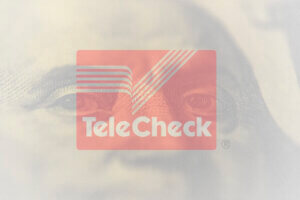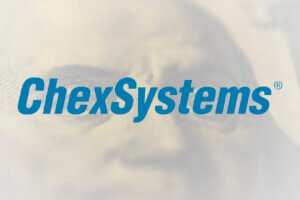Choosing between banks and credit unions can be a confusing decision. Both institutions offer a suite of financial products and services, but their underlying structures and approaches differ significantly.
In this article, we will take a comprehensive look at banks and credit unions, covering everything you need to know to choose the right one for your needs. We will discuss what banks and credit unions are, how they work, their differences, and how to choose between them.
Banks: What They Are and How They Work
Banks, specifically retail banks or commercial banks, are for-profit financial institutions that accept deposits and make loans. They can be owned by investors or publicly traded.
Banks offer a variety of financial products and services, including credit cards, checking and savings accounts, home equity loans, and investment products. Banks also help entrepreneurs grow by providing them with business loans.
How Do They Work?
Banks accept deposits from customers and lend them out to other customers, businesses, and governments. Banks make money from the margin between the interest they collect on loans and the interest they provide on deposits.
They also make money by charging fees for their products and services.
Both state-chartered and national bank deposits are federally insured by the Federal Deposit Insurance Corporation (FDIC) for up to $250,000. This means that if a bank goes under, depositors can still get their money back up to the insurance limit.
Banks often receive data from consumer reporting agencies such as Equifax and ChexSystems, enabling them to assess risk, mitigate fraud, and make informed decisions.
Types of Banks: Brick-and-Mortar Banks vs. Online Banks
Brick-and-mortar banks, also called traditional banks or physical banks, have physical branches where customers can deposit or withdraw cash, open accounts, and speak with a teller or banker in person.
Online banks, also known as digital banks, neobanks, or fintech banks, operate entirely online with no physical locations or branches. All banking services are done through mobile banking apps and websites.
Online banks generally offer lower fees and higher interest rates, but they have limited customer service options, and customers cannot deposit or withdraw cash in person.
If you’re facing challenges opening a bank account due to a negative ChexSystem record, explore our article “Top US Banks That Don’t Rely On ChexSystems.”
Credit Unions: What They Are and How They Work
Credit unions are community-oriented not-for-profit organizations owned by their members. Membership is required, and credit unions must limit their customer base to an NCUA-approved “field of membership,” also known as the “common bond,” such as a workplace, school, place of worship, or geographic area.
How Do They Work?
Credit unions make money by lending money and charging favorable interest rates on loans. They are exempt from federal income taxes, which allows them to keep more of their earnings and pass those savings on to their members through lower fees and better interest rates.
National Credit Union Administration (NCUA) deposit insurance protects federally insured credit union deposits up to $250,000 for each credit union account.
Credit unions also utilize data from consumer reporting agencies like ChexSystems for risk assessment, fraud prevention, and informed decision-making.
If you’re unable to open a checking account at your preferred credit union due to a negative ChexSystems record, read our article Credit Unions That Don’t Utilize ChexSystems.
Banks and Credit Unions: Key Similarities & Differences
How Are Banks and Credit Unions Similar?
Here are 4 ways in which banks and credit unions are similar:
- Banks and credit unions provide savings and checking accounts, loans, and mortgages
- Banks and credit unions offer deposit insurance provided by FDIC and NCUA
- Both banks and credit unions are government-regulated.
- Both types of institutions often provide online banking services and ATM access.
How Do Banks and Credit Unions Differ?
Banks and credit unions differ in 5 key aspects:
- Banks operate on a for-profit model, while credit unions are not-for-profit institutions.
- Banks are FDIC-insured, while credit unions are NCUA-insured.
- Banks are open to anyone, while credit unions typically have membership requirements.
- Banks may have higher fees and lower interest rates, while credit unions often offer lower fees and higher savings rates.
- Banks have larger branches with more staff, while credit unions have smaller branches with more personalized service.
Benefits of Choosing a Bank Over a Credit Union
Here are the advantages of choosing a bank over a credit union:
- Widespread accessibility: Larger ATM and branch networks
- Diverse product offerings: Wider range of financial products and services
- Technology and innovation: More advanced digital banking features and mobile apps.
- Larger financial resources: Greater financial stability and can offer competitive rates.
- Global presence: Better international transaction capabilities,
Advantages of Opting for a Credit Union Instead of a Bank
Here are the advantages of choosing a credit union over a bank:
- Member ownership: Not-for-profit, owned by members.
- Community focus: Emphasis on community development and local impact.
- Lower fees: Typically lower fees and better interest rates
- Personalized service: Member-centric approach with personalized service and financial education
- Profit distribution: Profits returned to members in the form of dividends or improved services.
Bank vs. Credit Union: Decoding the Best Fit for You
Banks and credit unions are decent options for most people, but each has its strengths. Let’s break down the key aspects, highlighting which one excels in each so you can choose based on your preferences.
Interest rate / Loan terms
Credit unions usually offer lower loan rates and higher interest rates on savings accounts than national banks. However, there are exceptions, so it’s important to compare specific products and offers.
Better option: Credit unions
Product offering
Banks offer more diverse financial products and services than credit unions, including checking and savings accounts, credit and debit cards, business and personal loans, money market accounts, certificates of deposit (CDs), individual retirement accounts (IRAs), and investment services.
Better option: Banks
Fees
Credit unions usually charge lower fees than banks, including monthly maintenance fees, ATM fees, and foreign transaction fees. Additionally, credit unions generally have lower minimum balance and minimum deposit requirements.
Better option: Credit unions
Customer service
Credit unions are known for their emphasis on personalized customer service. They are often smaller and more community-oriented than banks.
Better option: Credit unions
Accessibility (shared branching and ATM presence)
Banks, especially national banks, typically have more branches and ATMs than credit unions. However, many credit unions participate in Co-Op Shared Branch Networks, which allow members to access the branches and ATMs of other credit unions.
A crucial difference between banks and credit unions is that banks are open to the general public, allowing anyone to open an account, contributing to their wider reach.
Better option: Banks
Insurance & Safety
Banks and credit unions are equally safe in terms of deposit insurance coverage. Both the FDIC and NCUA offer the same level of coverage, up to $250,000 per depositor, per insured bank or credit union, per ownership category.
Better option: None (Both equally safe)
Approval process and considerations
Credit unions are known for their more flexible approval process. They are more likely to consider factors such as your relationship with the credit union and your financial history when making lending decisions.
Better option: Credit unions
Online and mobile banking services
Banks typically have more advanced mobile banking and online services than credit unions. However, many credit unions have made significant investments in their digital banking capabilities in recent years.
Better option: Banks
Picking a Bank vs Credit Union: Things to Keep in Mind
- Customer Reviews
Check out customer reviews to see how satisfied they are with the institution’s services, customer support, and overall experience. - In-Person Visits
Visit different branches in person to assess the atmosphere and customer service. - Location Considerations
Evaluate the accessibility of bank branches and ATMs based on your daily routine. Choose the institution with the most convenient network of branches and ATM locations. - ATM Accessibility
See if the bank or credit union has convenient branch and ATM locations. Check if they are part of an ATM network, providing additional withdrawal access points. - ATM Fee Reimbursement
Inquire if the institution reimburses some or all out-of-network ATM fees. This is crucial, especially if you frequently withdraw cash from ATMs.
What Are Second Chance Banks?
Second Chance Banking is a popular term in the finance niche now, and learning more about it may help you make better decisions.
Second chance banks offer financial services to people with bad credit or a history of banking problems, such as overdrafts or account closures.
These banks typically have lower requirements for opening an account or getting a loan and may be more willing to work with customers to improve their credit scores.
>> Read up on Best Second Chance Bank Accounts In The US
Conclusion: Key Takeaways
Banks and credit unions are decent options for most people, but each has its strengths.
Credit unions typically charge lower fees and offer higher interest rates (higher than the national average rates) for people who meet their eligibility requirements. At the same time, banks provide a diverse array of products and services along with an extensive network of ATMs and branches accessible to any individual with a satisfactory banking history.
Ultimately, the best way to choose between a bank and a credit union is to consider your individual needs and preferences.







